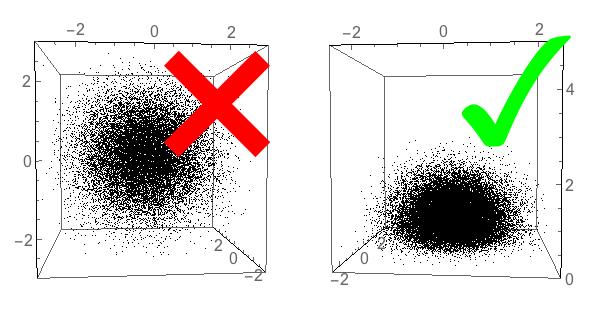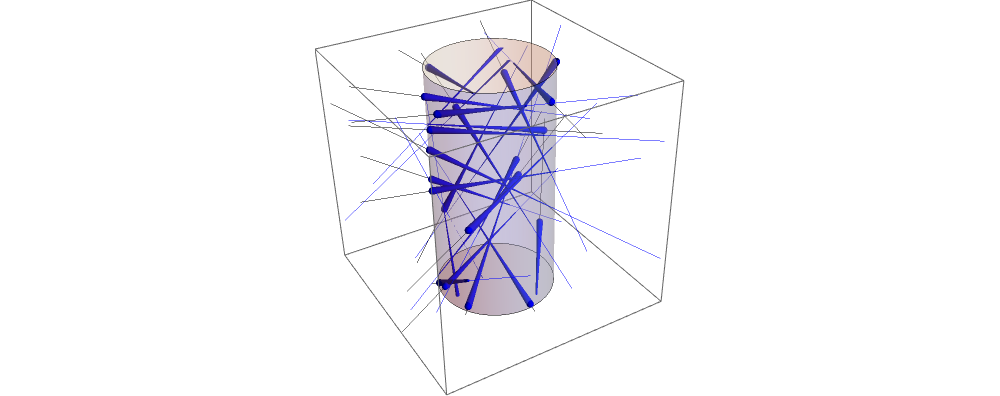Jacob Schwartz Scientist & HTML fan
The wrong (and right) way to select random velocities of particles moving through a surface
Part of my thesis is about simulating gases inside a box: their flow and how they interact with a plasma that is also inside a box. In order to do this, I’m using a FORTRAN code that’s been developed by generations of graduate students. I ran a simple test case in which I should end up with a gas of a uniform temperature and density inside my b... Read more 28 Apr 2019
Chance of particles passing through a cylinder without interacting
This post is a continuation of the ideas in the previous post. Read more 15 Nov 2018
Particles passing through an infinite cylinder
Part of my thesis work involves modeling a cylindrical plasma, and examining what happens when neutral molecules hit it. If the plasma density is low enough, the neutrals might pass straight through. If the density is higher, they could be elastically scattered by plasma particles. Or, if the density and temperature are high, they could be ioni... Read more 30 Sep 2018
Average distance a particle starting inside an infinite tube travels through the wall of the tube.
A particle is emitted from a uniform random location inside an infinite tube and travels in a uniform random direction. What is the average distance of tube wall it must travel through to escape? Read more 24 Mar 2018
Delta V required for low-TWR take off to orbit around a spherical airless world
$\def\i{\mathrm{i}}\def\twr{\mathcal{T}}\def\vn{V}\def\tn{t_o}\def\d#1#2{\frac{d #1}{d #2}}$Getting to orbit from the surface of a body takes fuel, thrust and time. Using a minimum of delta-$v$ (minimum fuel) is generally reckoned to be the best. In this post, we will present limits on the minimum delta-$v$ to get into orbit, given a rocket with... Read more 13 Aug 2016




